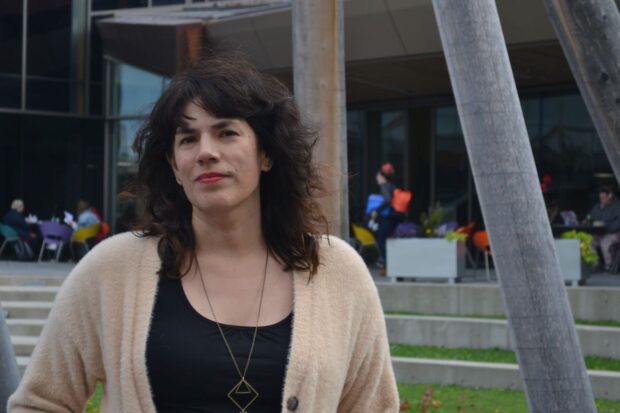In honour of National Day for Truth and Reconciliation, Algonquin College is hosting a screening of the multi-award-winning 2021 film Beans on Friday.
The semi-autobiographical film takes place during the 1990 Oka Crisis, a 78-day land dispute between a group of Mohawk people and the Quebec town of Oka.
Guests are invited to gather in C–building‘s Nawapon at 4 p.m. for light food and refreshments and will be ushered to the screening in N-building’s Big Black Box Theatre .
Following the 90-minute screening, there will be a pre-recorded Q and A with the film’s director, Tracey Deer, who lived through the Oka Crisis as a child growing up on Kahnawake Reserve in southwestern Quebec.
There will also be a space for reflection and discussion around the fire in Ishkodewan, moderated by the Asinabka Film and Media Arts Festival.
This event is being organized by Indigenous pedagogy and curriculum consultants Kerry Potts and Sheila Grantham.

The purpose of these brand-new roles at the college is to build relationships across the academics so teachers include Indigenous created content, according to Potts.
“Algonquin is really thirsty for this. Now that we have these beautiful spaces, it’s time to fill them with Indigenous voices,” she said.
Potts wanted to spark a conversation at the college that acknowledges “reconciliation is about so much more than residential schools.”
Beans, she decided, was an ideal outlet for people to reflect on the meaning of the National Day for Truth and Reconciliation.
“It shows the realities that the community of Kanesatake faced in 1990 as they were protecting their traditional lands and sacred burial grounds,” said Grantham.
Potts described it as an example of the lack of relationship between Indigenous communities and the towns they are next to, the federal government and the military.
The film is special to Potts in that it’s told through the eyes of a child. Its perspective allowed her to experience “immediate emotional empathy” for the affected community and relate to the characters on a human level.
“It really highlights what it’s like to feel like you don’t belong on your own land, allowing us to think about how we build bridges, literally and figuratively, and the power of those bridges,” she said.
It is important to look toward the Truth and Reconciliation Commission of Canada’s Calls to Action, as well as what the college is doing to implement these actions, especially on the National Day for Truth and Reconciliation, according to Grantham.
“Indigenous people all over Canada continue to fight for access to their lands and face racism, lack of justice and access to necessities,” Grantham said.
On Friday, a monument at Algonquin College will commemorate the children who did not return from residential schools, as well as residential school survivors and their families. A wide range of events and exhibits are scheduled from 9 a.m. to 7:30 p.m.
The screening and discussion event of Beans is a collaborative effort of the Truth and Reconciliation Indigenization, Learning and Teaching Services, film and media production and the Asinabka Film and Media Arts Festival.
Everyone is welcome but space is limited. If you are interested in bringing a class or large group to the screening, email Shelia Grantham at granths@algonquincollege.com to RSVP.


